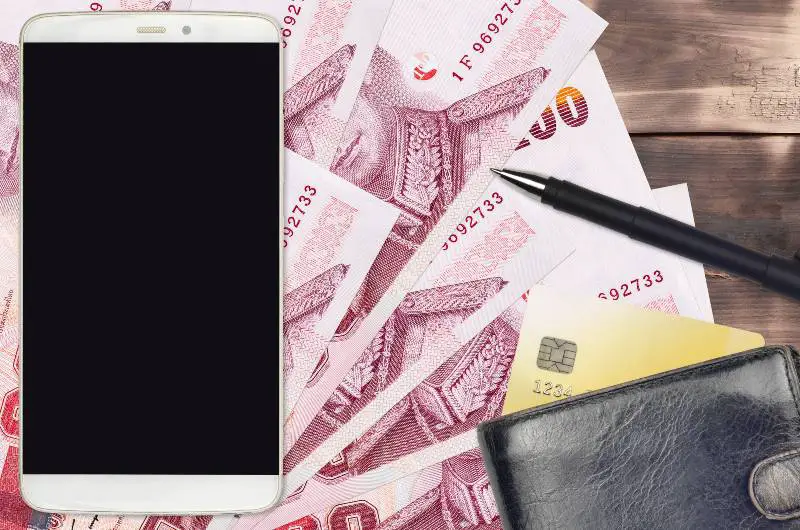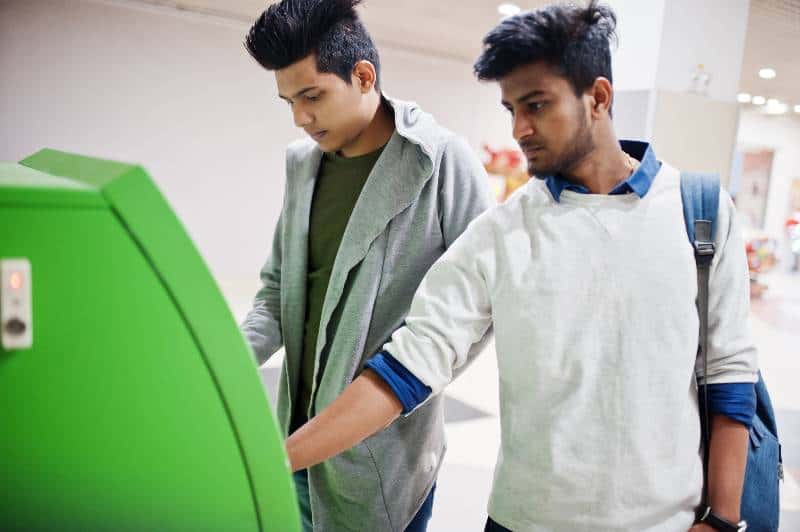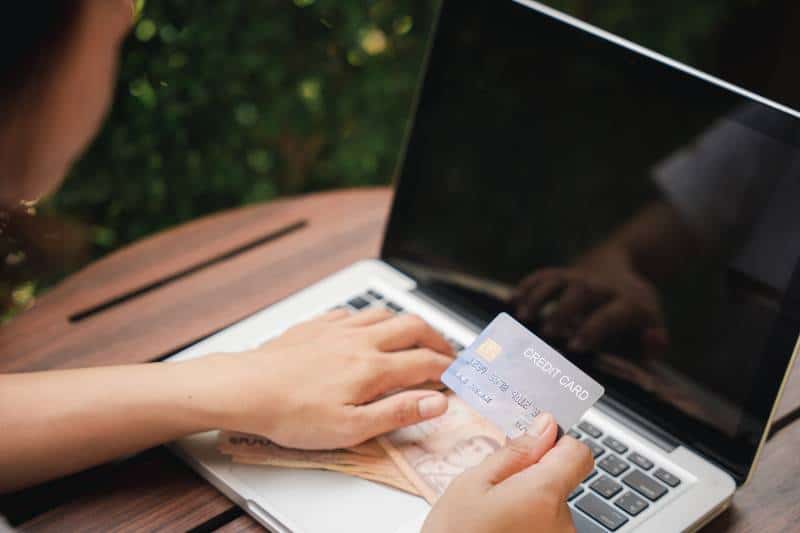Essential Tips for Opening Your Bank Account in Thailand
Making the move to Thailand can be a daunting task, especially when it comes to understanding how banking works in the bustling Southeast Asian country. If you’re new here and looking for ways how to open a bank account, then look no further! In this blog post, we are going to break down all the steps you need to know about how to open your own local Thai bank account – quickly, easily, and stress-free. You will learn what documents are required, what fees apply or can be waived, and which banks offer good services for foreigners living in Thailand. So read on and start making money moves!
A savings account is relatively easy for foreigners. Bangkok Bank allows tourists to open an account, and there is no restriction on the duration of their visa. However, having a longer visa validity can be helpful. Foreigners with work permits can apply for a current account.
Key Takeaways
- Opening a bank account in Thailand, while initially seeming daunting, is a straightforward process when you have the right information and documents.
- Choosing the right bank that suits your needs is crucial; some banks are more foreigner-friendly and offer a variety of services that others do not.
- Understanding the banking norms, fees, and leveraging online banking services can help manage your bank account effectively in Thailand.

Why Open a Bank Account in Thailand
Opening a bank account in Thailand as an expatriate offers numerous benefits and advantages. The ease of transactions, access to a wide range of services, and overall convenience make it an attractive option for expats residing in the country.
One of the primary advantages of opening a bank account in Thailand is the ease of conducting financial transactions. Having a local bank account allows expatriates to conveniently manage their day-to-day financial activities, such as receiving their salaries, paying bills, and transferring money both domestically and internationally. For instance, expats can easily set up automatic bill payments for utilities, rent, and other regular expenses, ensuring timely payments without the need for constant manual intervention.
Furthermore, by opening a Thai bank account, expatriates gain access to a comprehensive suite of banking services tailored to their needs. These services may include personal and business banking solutions, credit and debit cards, online and mobile banking facilities, as well as investment and wealth management options. Expats can enjoy the convenience of accessing these services in their preferred language, making the banking experience seamless and user-friendly.
Another significant benefit is the ability to receive and send money internationally at competitive exchange rates. Expats often need to transfer funds between their home country and Thailand, whether for personal or business purposes. By using a local bank account, expatriates can leverage the bank’s foreign currency exchange services, which typically offer favorable rates compared to other money transfer options. This allows for cost-effective and efficient cross-border transactions, ultimately saving money in the process.
Moreover, having a Thai bank account opens doors to various financial products and services that are exclusive to account holders. Expatriates can access loans, mortgages, and credit facilities from local banks, enabling them to make significant investments or purchase property in Thailand. Additionally, some banks offer exclusive privileges, discounts, and rewards programs to their account holders, enhancing the overall banking experience and providing additional value.
Beyond day-to-day banking, a local bank account can facilitate other essential transactions for expatriates. For instance, it is typically required to have a Thai bank account when applying for a work permit, as it allows for easier processing of salary transfers and provides an official financial record. Moreover, many landlords and real estate agents in Thailand prefer rental payments to be made through a local bank account, streamlining the rental process and providing a paper trail for both parties.
Opening a bank account in Thailand as an expat offers a wide array of benefits. The ease of transactions, access to a comprehensive range of services, and the ability to engage in various financial activities make it a highly convenient and practical choice. By having a Thai bank account, expatriates can efficiently manage their finances, access exclusive services, and enjoy a seamless banking experience tailored to their needs, all while staying connected to the local financial system.
Prerequisites for Opening a Bank Account in Thailand
To open a bank account in Thailand, there are certain prerequisites, required documents, and eligibility criteria that you need to fulfill. Here is a comprehensive list to guide you through the process:
Prerequisites:
- Age: You must be at least 15 years old to open a personal bank account in Thailand. For individuals below 15 years of age, a guardian or parent will need to open the account on their behalf.
- Residency Status: While it is not mandatory to be a Thai resident to open a bank account, some banks may have specific requirements regarding residency. Non-residents may be required to provide additional documentation or fulfill certain conditions, such as having a work permit or long-term visa.
Required Documents:
- Valid Passport: You will need to present a valid passport as proof of identity. The passport should have at least six months of validity remaining.
- Non-Thai Identification: For non-residents, a valid identification document issued by their home country’s government, such as a national ID card or driver’s license, is required.
- Resident Identification (if applicable): Thai residents need to provide their Thai national identification card (known as “Citizen ID Card”) or any other identification document issued by the Thai government.
- Address Verification: Proof of address is required, which can be in the form of a recent utility bill (e.g., electricity or water bill), bank statement, or a letter from the Immigration Bureau confirming your current address. The document should display your name and address clearly and be no older than three months.
- Work Permit or Visa (if applicable): Non-residents may need to provide a work permit or a valid long-term visa to satisfy the bank’s requirements. Different banks may have varying policies in this regard, so it’s advisable to inquire with the specific bank you intend to open an account with.
- Tax Identification Number: It is recommended to provide your tax identification number from your home country, although it may not be mandatory for all banks.
Eligibility Criteria:
- Minimum Initial Deposit: Different banks have different minimum deposit requirements, which can vary from a few hundred baht to several thousand baht. It’s important to check with the bank to determine their specific initial deposit requirements.
- Age Restrictions: As mentioned earlier, you must be at least 15 years old to open a personal bank account. However, some banks may have age-related restrictions or additional requirements for account holders below a certain age.
- Good Standing: Banks may conduct a background check to ensure that you have not been involved in any fraudulent or illegal activities. It is essential to maintain a good financial and legal standing to meet the eligibility criteria.
- Compliance with Bank Policies: You must comply with the bank’s policies and regulations regarding the opening and operation of the account. This includes adhering to any specific terms and conditions set by the bank.
Example:
Let’s consider an individual named John who is a non-resident and wants to open a bank account in Thailand. John, who is 25 years old, holds a valid passport and a driver’s license issued by his home country, the United States.
He also has a work permit in Thailand. To fulfill the prerequisites, John ensures that he meets the age requirement and holds the necessary documentation, including his passport, driver’s license, work permit, and proof of address (such as a utility bill) displaying his name and address.
With these documents in hand, John is eligible to proceed with the account opening process.
Opening a bank account in Thailand is a straightforward process as long as you fulfill the prerequisites, provide the required documents, and meet the eligibility criteria.
It is advisable to contact the specific bank you intend to open an account with for any additional requirements or specific policies they may have in place.
Step-by-Step Guide to Open a Bank Account in Thailand
Opening a bank account in Thailand involves several steps, including choosing the right bank, completing the initial application process, providing the necessary documentation and paperwork, and making the opening deposit. Here is a step-by-step guide to help you through the process:
Research and Choose the Right Bank:
- Research different banks in Thailand to find the one that best suits your needs in terms of services, fees, accessibility, and customer reviews.
- Consider factors such as branch locations, ATM availability, online banking services, and customer support.
Visit the Bank Branch:
- Visit the branch of your chosen bank in person to initiate the account opening process.
- Approach the customer service desk and express your interest in opening a bank account.
- Request an application form or ask for guidance on how to proceed.
Complete the Initial Application Process:
- Fill out the application form provided by the bank. This form will typically require your personal information, such as full name, date of birth, address, contact details, and occupation.
- Some banks may require you to fill out additional forms or questionnaires related to your financial activities and source of funds.
- Make sure to provide accurate and up-to-date information.
Prepare the Required Documentation and Paperwork:
- Gather all the necessary documents mentioned in the previous response, such as a valid passport, non-Thai identification, proof of address, resident identification (if applicable), work permit or visa (if applicable), and tax identification number.
- Ensure that all the documents are in good condition and meet the bank’s requirements in terms of validity and clarity.
- Make copies of all the documents to submit along with the application form.
Submit the Application and Documentation:
- Hand over the completed application form and the required documents to the bank representative.
- They will review the information and verify the documents for accuracy and compliance with the bank’s policies.
- If any additional information or documents are needed, the bank will inform you at this stage.
Provide the Opening Deposit:
- Banks in Thailand typically require an initial deposit to open an account. The minimum deposit amount varies between banks and account types.
- Prepare the opening deposit amount in Thai Baht (THB) in the form of cash or a cashier’s check made out to the bank.
- Hand over the deposit to the bank representative, who will process the transaction and credit it to your newly opened account.
Receive Account Details and Documents:
- Once your application and deposit have been processed, the bank will provide you with the account details, including the account number, account type, and any associated cards (such as ATM or debit cards).
- You may also receive additional documents, such as account terms and conditions, online banking login details, and guidelines for accessing and managing your account.
Remember to keep all the receipts and documents provided by the bank in a safe place for future reference. The entire process may take a few days to complete, depending on the bank’s internal procedures. If you have any questions or need further assistance, don’t hesitate to reach out to the bank’s customer support for guidance.
Tips for Managing Your Bank Account in Thailand
Managing your bank account effectively in Thailand involves using online banking, understanding fees, and making the most of the available services. Here are some tips to help you:
Online Banking:
- Register for online banking: Visit your bank’s website or branch to register for online banking services. This will allow you to conveniently manage your account online.
- Familiarize yourself with the platform: Take the time to explore the online banking platform and understand its features. This includes checking balances, transferring funds, and paying bills online.
- Set up alerts and notifications: Enable email or SMS alerts to receive updates on your account balance, transactions, and other important notifications.
Understanding Fees:
- Read the fee schedule: Review your bank’s fee schedule to understand the charges associated with various transactions or services. Common fees may include ATM withdrawals, fund transfers, or account maintenance.
- Choose a suitable account type: Different types of accounts have varying fee structures. Select an account that aligns with your banking needs and minimizes fees. Some banks offer fee waivers based on maintaining a minimum balance or meeting specific criteria.
- Plan your transactions: Be mindful of transaction fees, especially when making international transfers or using ATMs from other banks. Consider consolidating transactions to minimize fees.
Making the Most of Services:
- Utilize mobile banking apps: Many Thai banks offer mobile banking apps with enhanced features, such as QR code payments, mobile wallet integration, and expense tracking. Explore these services to maximize convenience and efficiency.
- Take advantage of promotional offers: Keep an eye out for promotional offers or discounts provided by your bank. These can include reduced fees, cashback rewards, or special interest rates on deposits.
- Seek customer support when needed: If you have any questions or need assistance, reach out to your bank’s customer support. They can provide guidance on using specific services, resolving issues, or clarifying any concerns.
Additionally, it’s essential to stay vigilant and practice good security habits when managing your bank account online. Use strong passwords, avoid sharing personal information, regularly monitor your account activity, and report any suspicious transactions to your bank immediately.
Remember to refer to your specific bank’s guidelines and policies as banking practices can vary slightly between institutions.
If you are considering starting a business in Thailand, it is crucial to gather information and gain insights into the process. Discover valuable tips and strategies in this informative article titled “From Idea to Reality: How To Start a Business In Thailand”. Learn about the necessary steps, legal requirements, and potential challenges that entrepreneurs may face.
Whether you are a local resident or an international entrepreneur, this article will provide you with the knowledge to navigate the business landscape of Thailand successfully. Don’t miss out on this comprehensive resource to help you turn your idea into reality!
Common Problems and Solutions When Opening a Bank Account in Thailand
Opening a bank account in Thailand, as a foreigner, can sometimes be a bit of a hassle due to several reasons such as the language barrier, documentation requirements, and residency conditions among others. Below are some of the common problems that people encounter and potential solutions.
Problem 1: Not Having a Local Address
Banks in Thailand require proof of a local address for opening an account.
Solution: You can solve this problem by renting a property or staying in a hotel. The lease agreement or the letter from the hotel management could be used as a proof of address. Also, consider asking your employer for a letter confirming your address if you’re in Thailand for work.
Problem 2: Language Barrier
Banking in a foreign country can be challenging due to language barriers. Many banks in Thailand may not have English-speaking staff.
Solution: Seek out banks in larger cities or tourist areas as they are more likely to have English-speaking staff. Also, consider using a translator or local guide who can assist you with communication.
Problem 3: Visa Requirements
Some banks may require certain types of visas (like a Non-Immigrant Visa) to open an account. Tourist visas are often not accepted.
Solution: If you’re in Thailand for an extended period, consider obtaining a Non-Immigrant Visa. The requirements for this type of visa vary, so it’s important to check with the Thai embassy or consulate in your home country.
Problem 4: Incomplete Documentation
Banks often require several documents for verification like your passport, visa, and proof of address. Sometimes, they may even ask for a reference from a current account holder.
Solution: Before going to the bank, ensure that you have all the necessary documents. Contact the bank in advance to find out what documents you need. If a reference is needed, try networking with expatriates in your local community or workplace who might have an existing account.
Problem 5: Initial Deposit Requirement
Thai banks usually have a minimum initial deposit requirement which can be quite high for foreigners.
Solution: Research different banks to see which one has a lower initial deposit requirement. Some international banks operating in Thailand may have more flexible requirements for foreigners.
Problem 6: Online and International Banking Restrictions
Some Thai banks restrict online banking features and international transfers for foreigners.
Solution: Research and find banks that offer full online banking services to foreigners. Alternatively, consider opening an account with an international bank with branches in Thailand.
Remember, the banking policies can vary widely from bank to bank in Thailand. It is recommended to do your research and perhaps visit several banks to see which one best meets your needs. If you are working with a local employer, they may also be able to provide guidance or assistance.

How to Open a Bank Account in Thailand FAQs
Are there any age restrictions for opening a bank account in Thailand?
If you’re a parent, legal guardian, or grandparent, you can open a custodial account for your child. However, children under 18 are not allowed to open an account on their own. A custodial account is opened by a responsible person on behalf of someone else.
Can I open a bank account in Thailand without a local address?
If you are a foreigner with no proof of residence in Thailand, you can only open a non-resident bank account. However, some Thai banks may allow non-residents to open a resident account with no proof of residence, depending on their internal policy and discretion.
What are the best banks for foreigners in Thailand?
Foreigners arriving in Thailand usually opt for either Bangkok Bank or Kasikorn Bank. However, UOB (which acquired Citibank’s retail banking in Thailand in 2022) and CIMB are also known for their flexibility towards foreigners and for providing more benefits for ex-pats.
Can I open a Thai bank account from abroad?
It is unlikely that you can open a bank account with a Thai bank while you are outside Thailand. Even if there are non-resident accounts available, you still have to go to a local branch to set up your account and have your documents verified.
Do I need to be present in person to open the bank account?
To Open a bank account in Thailand, you typically need to go to a bank branch where a staff member will check your documents and witness you signing the necessary paperwork, even if you’re getting a non-resident account.
Conclusion
With a clear understanding of the processes required to open a bank account in Thailand, you can confidently forge ahead with your financial arrangements. Even if you are daunted by the prospect of living in a new country, knowing how to start your finances can be one of the most rewarding achievements. The best thing you can do is invest some time into doing research and comparing banks, their benefits and services, as well as any requirements for opening an account. With the right information, taking control of your finances in Thailand can be an empowering journey.
Consider Subscribing to our newsletter for more detailed information about living in this beautiful country could help ease your transition and provide insight into navigating this next adventure. From finding the right bank for doing business to understanding expected behavior when it comes to paying bills and handling money; taking charge of your finances is only the beginning!






